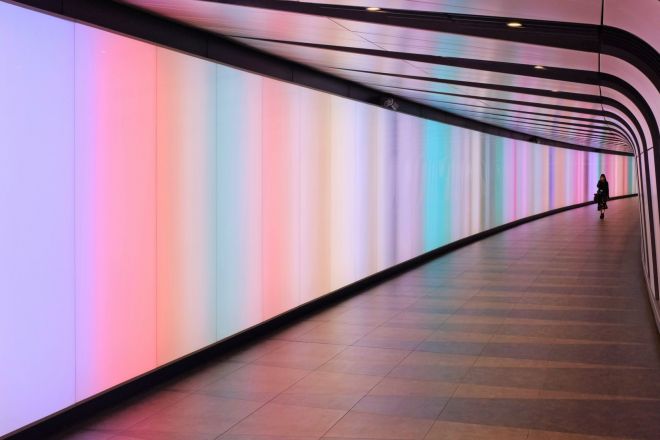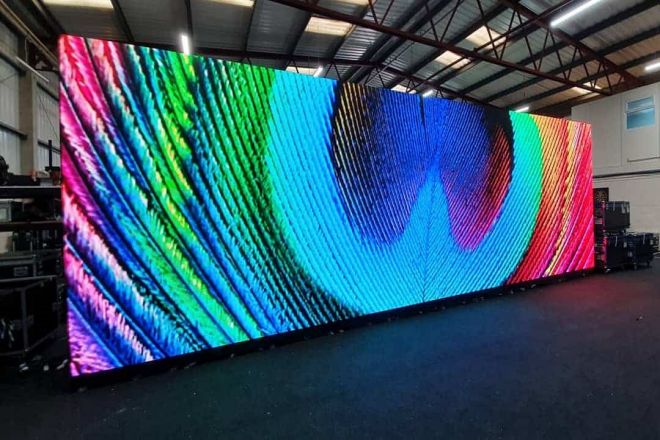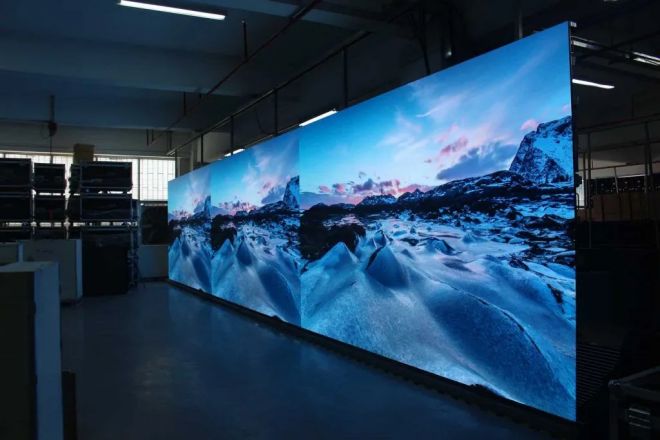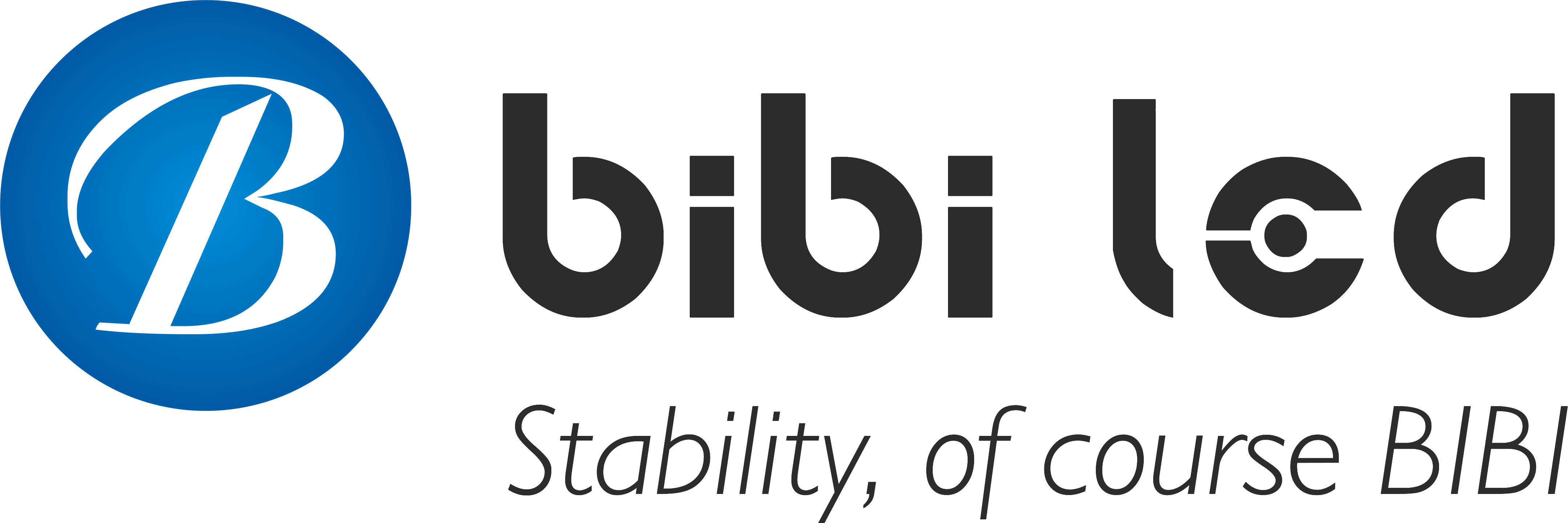Introduction

Technical support is the key to ensuring the stable and efficient operation of LED displays. It is also a guarantee that every buyer can have. It covers many aspects, from product quality, installation, and debugging to software support, after-sales service, etc., and every aspect is crucial.
A high-quality LED display screen not only requires advanced hardware equipment and exquisite production technology but also needs complete technical support and an after-sales service system. Only in this way can we ensure that the display always maintains good performance and stability during use and provides users with the best experience.
1. Guarantee of product quality and technical specifications
In the manufacturing process of LED displays, ensuring product quality and technical specifications is a crucial part. This not only involves the core performance and long-term stability of the product, but also directly affects the user experience and satisfaction. Below we will elaborate on the three aspects of raw material quality assurance, production process and technical standards, and display performance parameters.
- Raw material quality assurance
The quality of the raw materials of the LED display screen directly determines the overall performance and life of the product. To ensure the high quality of raw materials, manufacturers adopt strict screening standards. For example, as the core component of the display screen, the quality of the LED chip directly affects the display effect and energy consumption.
Therefore, manufacturers will choose high-quality LED chips from well-known brands to ensure that they reach industry-leading levels in terms of brightness, color temperature, and lifespan. In addition, key raw materials such as PCB boards and driver ICs also need to be strictly screened to ensure their stability and reliability.
High-quality raw materials have an important impact on the performance, lifespan, and stability of the display.
The LED display screen made of high-quality raw materials not only has higher brightness and contrast and can present a more delicate and realistic picture effect but also has a longer service life and better stability, reducing the need for later maintenance and replacement. The cost of.
- Production process and technical standards
Production process and technical standards are key factors affecting the quality of LED display screens. Manufacturers will adopt advanced production technology and strict quality control processes to ensure that every process meets industry standards and customer requirements.
During the production process, manufacturers will strictly control environmental factors such as temperature and humidity to ensure product consistency and stability. In addition, manufacturers will also use various testing methods, such as high-power microscope testing, aging testing, etc., to comprehensively test the performance of the product to ensure that the product reaches the best condition before leaving the factory.
Production technology that complies with international and industry standards has an important impact on product quality. LED displays manufactured using advanced production processes and technical standards not only have higher quality and stability but also can meet various complex environments and application needs. This helps improve product competitiveness and market share.
- Display performance parameters
The performance parameters of LED display screens are important indicators for measuring their performance. The main performance parameters include brightness, contrast, color gamut, refresh rate, etc. These parameters directly affect the display effect and audience experience.
For example, brightness determines the visibility of the display screen outdoors or in a strong light environment; contrast determines the layering and three-dimensionality of the picture; color gamut determines the color range and vividness that the display can present; refresh rate determines Improve the smoothness and clarity of the picture.
In order to meet the needs and application scenarios of different customers, manufacturers will provide a variety of LED displays with different performance parameters for customers to choose from. Customers can choose suitable display products based on their actual needs and budget.
At the same time, manufacturers will continue to update and optimize product performance parameters based on market demand and technology development trends to meet the changing market and customers’ personalized needs.
2. Installation, debugging, and technical support

After purchasing an LED display, professional installation and commissioning, technical training, and high-quality after-sales service and technical support are key links to ensure the normal operation and efficient use of the display. Below, we will discuss these three aspects in detail.
- Professional installation and commissioning services
The installation and debugging of LED display screens requires a professional team to ensure that the display screen can be installed correctly according to the design requirements and achieve the best display effect. Professional installation and debugging teams usually consist of experienced engineers and technicians.
They have rich industry knowledge and practical experience and can carry out customized installation and debugging according to different environments and needs.
If there are no professional installers locally, the manufacturer will also arrange online guidance to ensure the correctness of your installation.
During the installation and debugging process, the team will follow strict operating procedures and precautions to ensure that every detail complies with specifications. At the same time, they will also pay attention to key links, such as the fixation of the display, power connection, signal transmission, etc., to ensure the stability and safety of the display.
- Technical training and guidance
In order to allow users to better master the operation, maintenance, and management of LED displays, suppliers usually provide targeted training courses.
These courses include basic operation training, maintenance skills training, advanced management training, etc., aiming to help users improve usage efficiency, reduce failure rates, and extend the service life of the display.
The importance of technical training is self-evident. Through training, users can become more familiar with the various functions and operations of the display and avoid problems caused by misoperation. At the same time, they can also learn some basic maintenance skills, such as cleaning, inspection, etc., so that they can quickly locate the problem and take measures when the display fails.
- After-sales service and support
High-quality after-sales service and support are the guarantee for the continued and stable operation of LED displays. Suppliers usually establish dedicated after-sales service teams to handle user inquiries, complaints, and repair requests. These teams usually have a complete organizational structure and response mechanism and can provide help to users in the shortest possible time.
Common after-sales service items include repairs, maintenance, upgrades, etc. When the display fails, the after-sales service team will respond quickly and provide professional repair services; at the same time, they will also perform regular maintenance and inspections on the display to ensure that it is always in good working condition.
In addition, as technology continues to develop, suppliers will also provide upgrade services to users so that they can better enjoy the convenience and advantages brought by new technologies.
3. Software and system support
The efficient operation of LED displays is inseparable from powerful software and system support. In this section, we’ll dive into control systems and software, content production and playback, and remote monitoring and management.
1). Control systems and software
The control system of the LED display screen is its core part. It is responsible for receiving, processing, and transmitting various signals to ensure that the display screen can display according to the preset requirements. An excellent control system should have the following functions and characteristics:
Strong stability: It can operate stably in various complex environments to ensure the normal operation of the display screen.
Rich functions: supports a variety of signal input and output, such as video, audio, text, etc., to meet the diverse needs of users.
High ease of use: Provides an intuitive and concise operation interface to facilitate users to perform various settings and operations.
At the same time, supporting software is also crucial. High-quality software should have good compatibility and stability and be able to ensure seamless connection with the control system. In addition, the software should also be easy to use, allowing users to easily master various operating techniques.
2). Content production and playback
Content production and playback are important aspects of LED display applications. In order to provide high-quality content, vendors typically provide the following technical support and solutions:
Professional content production software: Helps users easily produce high-quality video, audio, and text content.
Diverse content format support: Supports content input in multiple formats, such as MP4, AVI, JPG, etc., making it easy for users to choose according to their needs.
Efficient content playback system: Ensure that content can be played according to preset requirements and provide a smooth playback experience.
In addition, the relationship between content quality and display effect cannot be ignored. High-quality content can enhance the display effect, making it more vivid and realistic. Therefore, suppliers should provide high-quality content production and playback technical support to meet user needs.
3). Remote monitoring and management
With the development of technology, remote monitoring and management have become important functions of LED displays. Through the remote monitoring and management system, users can understand the operating status of the display anytime and anywhere and perform corresponding operations and management. This system has the following features and benefits:
Real-time monitoring: Through the remote monitoring system, users can understand the operating status of the display screen in real time, including key indicators such as temperature, humidity, and brightness.
Fault warning: The system can automatically detect the fault condition of the display screen and provide early warning to help users find and solve problems in time.
Data analysis: The system can collect and analyze the operating data of the display screen, provide users with valuable reference information, and help users optimize the use and management of the display screen.
Real-time data analysis and fault warning are of great significance to improving operational efficiency. Through remote monitoring and management systems, users can manage displays more efficiently, reduce operating costs, and improve display effects.
At the same time, the system can also provide users with targeted technical support and services to further enhance the user experience.
4. Customized services and solutions

In today’s era of diversified needs, customized services and solutions have become the key to meeting customer needs and improving competitiveness. For the LED display industry, we provide the following customized services and solutions to meet the individual needs of customers.
- Customized design
We deeply understand the needs of each customer and provide customers with customized LED display design solutions based on the customer’s brand, scene, target audience, and other factors.
This includes, but is not limited to, personalization in size, shape, appearance, color, etc. Through customized design, we help customers create unique LED displays to enhance brand image and audience appeal.
- Customized function development
In addition to basic display functions, we also develop customized functions based on our customers’ specific needs. These functions may include interactive functions, data analysis functions, remote control functions, etc., to meet customer needs in specific scenarios.
The customization function not only increases the added value of the display screen but also allows the display screen to better integrate into the customer’s business scenario and improve the overall effect.
- Overall solution
We provide overall solutions, including hardware, software, and services, to provide customers with one-stop service. This includes all aspects of LED display selection, design, production, installation, debugging, training, and maintenance.
Through overall solutions, we ensure that customers can obtain high-quality LED display products and professional service support, thereby improving customer satisfaction.
The significance of the overall solution lies in its ability to provide customers with a comprehensive, efficient, and convenient service experience. Customers do not need to run between multiple suppliers. They only need to cooperate with one of us to get a full range of services from hardware to software, from installation to maintenance.
This not only reduces customer communication costs and time costs but also improves service quality and efficiency. Therefore, the overall solution has become the first choice for more and more customers.
Conclusion
In short, LED display technology support is the key to ensuring the stable operation of the display and improving the user experience. In the future, we need to continue to innovate and improve the technical support system to meet the changing market and the personalized needs of customers.
Finally, if you want to know more about LED displays, please get in touch with us.
